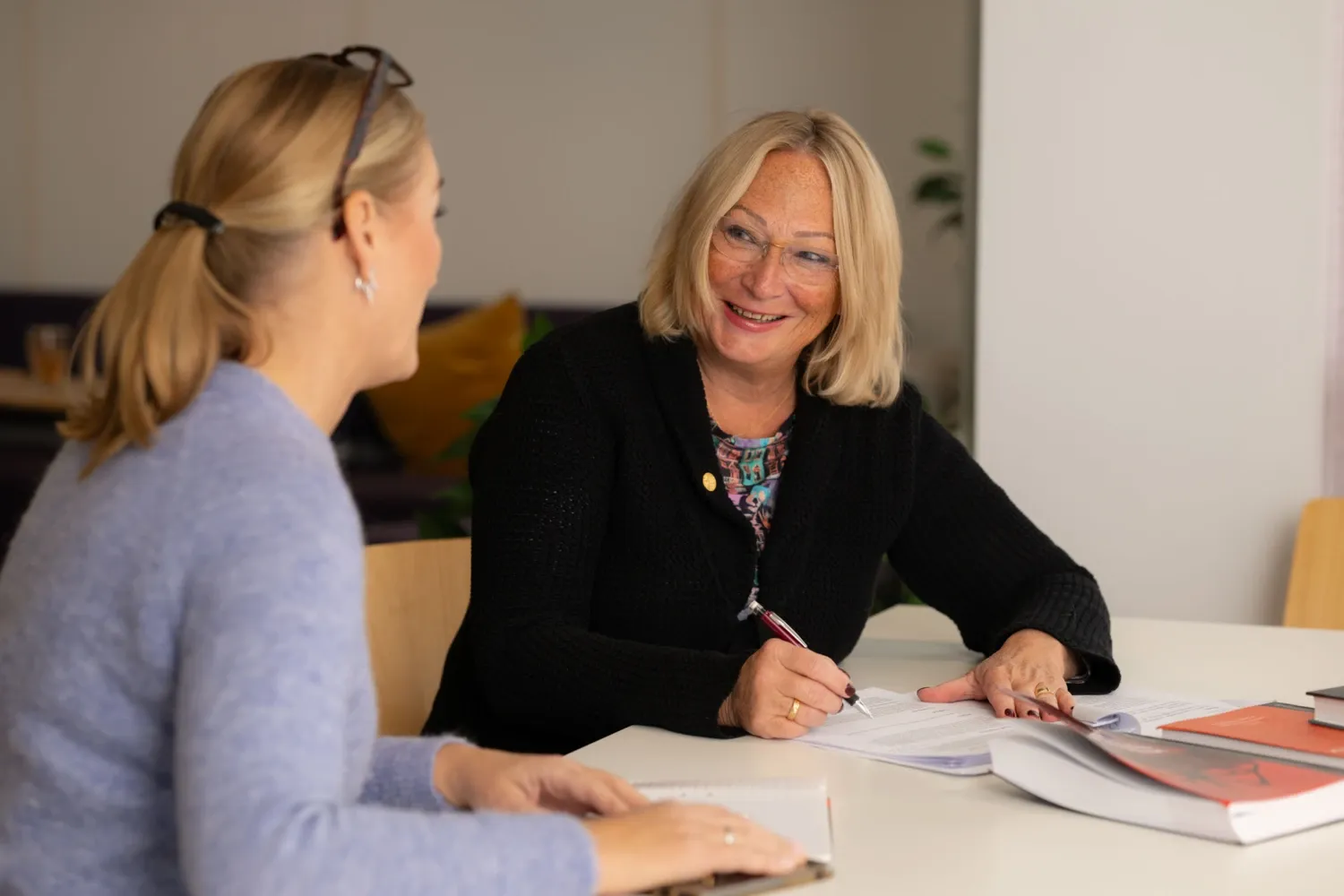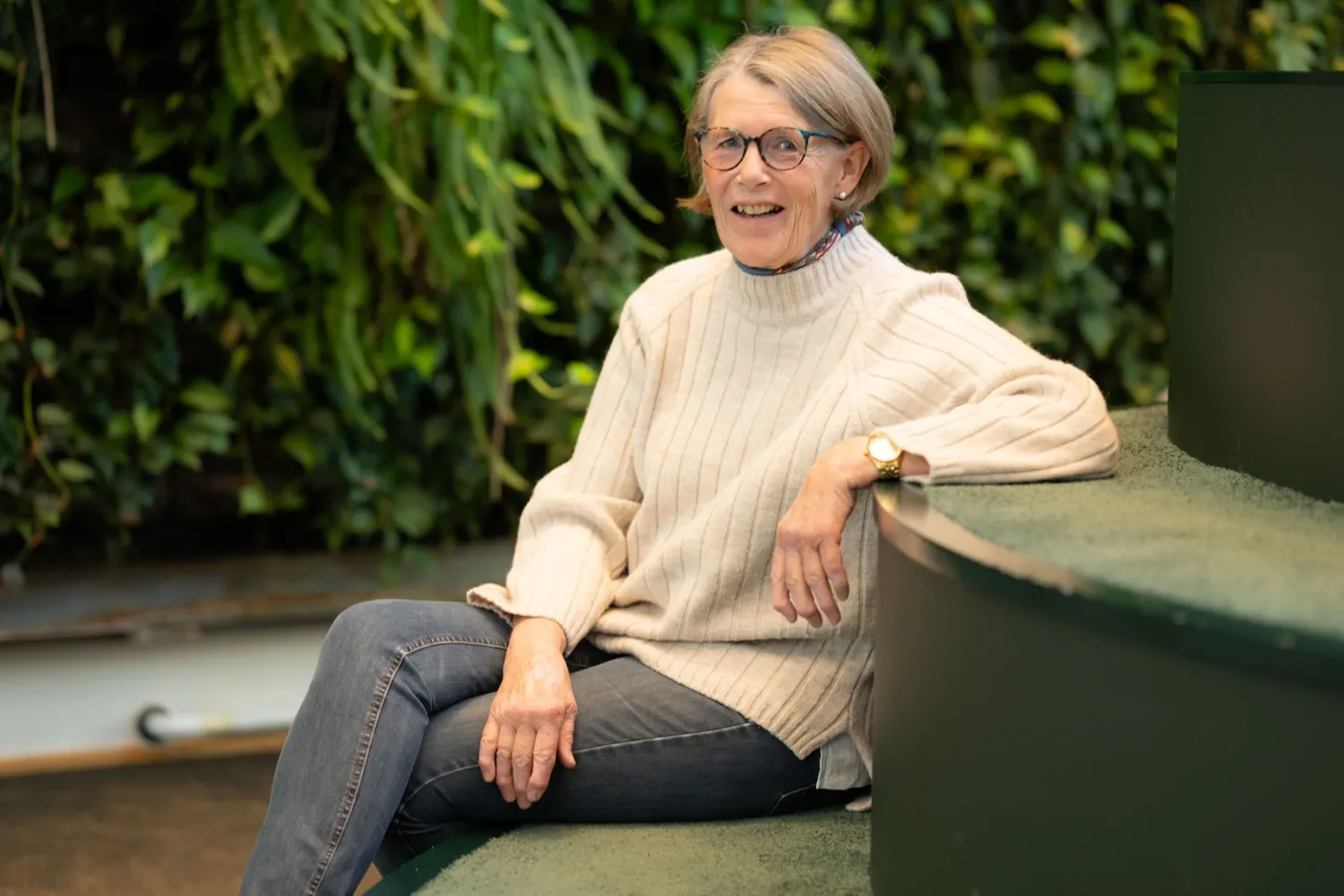NURSING: Early Academization Yielded World-Leading Results
Nursing education moved from the Stockholm College of Health Sciences to Karolinska Institutet (KI) in 1998. However, the history of nursing in Sweden dates back much earlier.
Sweden’s first nursing programme was founded in 1851 by Marie Cederschiöld at the Swedish Deaconess Society in Stockholm. She had trained at a deaconess centre in Germany, where Florence Nightingale was also a visitor at the time. In 1867, the Red Cross established another nursing school, and in 1884, Queen Sophia initiated the Sophiahemmet Nursing School, Sophiahemmets sjuksköterskeskola.
These early schools functioned as residences for young women who were trained for a life of caregiving and service. The education was often characterised by discipline, authority, and strict traditions. The boarding school model remained in place until the 1960s.
A Clearer Role in Society
In 1939, the State Nursing School was founded with new educational principles that emphasised the importance of practical training. The initiative was led by nurse Karin Nordendahl, who introduced a social medicine perspective and highlighted the societal role of nurses.
Following the 1977 university reform, nursing education was granted university status. Nursing schools became colleges, where education was to be problem- and research-oriented. This shift created a movement among faculty members to pursue further training and research qualifications.
At the same time, Stockholm's various nursing programmes began merging into the Stockholm College of Health Sciences , located at today’s KI Campus Solna. Several nursing and specialist programmes, including district nursing, paediatric nursing, and radiology, were consolidated there.
Over the next two decades, the programme evolved into a university-level education with diverse course offerings, and teaching staff were given opportunities for postgraduate studies. Nursing was established as a core academic subject.
”In Sweden, the nursing profession has been rapidly academised, which has undoubtedly contributed to our high rankings in both education and research. The pioneers also received significant support from the healthcare system.”

Part of KI
In 1998, the Department of Nursing was transferred from the Stockholm College of Health Sciences to KI. Initially, the department operated in temporary facilities, but in 2002, it moved into the newly built Zanderska Huset in Flemingsberg.
In 2006, a reorganisation took place, integrating the Department of Nursing into NVS. That same year, the Swedish Council for Higher Education evaluated the country’s nursing programmes, criticising KI’s nursing programme along with approximately 30 others. A follow-up review found continued shortcomings, including a lack of academic competence among faculty, leading KI to lose its accreditation for nursing degrees in 2008.
The period that followed was described as highly turbulent. At NVS, a major reform was initiated, focusing on clarifying nursing as a distinct subject and better integrating theory and practice. The programme was redesigned into thematic structures with core subjects such as ethics running through all semesters.
”When we clarified the subject of nursing in relation to other disciplines, we found an excellent solution—so effective that other programmes have adopted it when designing their curricula.”

A significant overhaul of faculty qualifications was also undertaken. Around 30 teachers left their positions, some pursuing further education. Newly recruited faculty members often held postgraduate degrees in related fields.
A strategic investment of approximately SEK 21 million was made to strengthen research connections. This initiative led to outstanding results in a subsequent evaluation.
In 2010, the Swedish Council for Higher Education reinstated KI’s accreditation for nursing degrees, allowing the programme to resume from the autumn semester of that year.
”Just six years after we regained the right to award degrees for the nursing programme, our programme was ranked as the fifth best in the world. And although ranking systems should be taken for what they are, it shows our enormously strong development. ”
The strong ranking results have continued. In 2021, The Academic Ranking of World Universities (ARWU) ranked KI as the fourth-best university globally for nursing, making it the top-ranked institution in Europe.
On-site Training and Interprofessional Learning
On-site training has always been a key component of the nursing programme, with placements included in every semester. From the first semester, students are introduced to the nursing profession through early clinical experiences. Practical skills training, including simulations, is also a vital part of the curriculum, and continues to evolve in today’s nursing education.
A unique final clinical examination was introduced, combining both written and practical components. The practical portion requires students to work in pairs to care for a simulated patient, demonstrating both technical skills and collaboration abilities. This model remains in use today.
Already in the late 1990s, an effort was made to interprofessionalise nursing education, which has proved very successful.
"The interprofessional elements of the programme are highly valued by students. At the same time, they play a crucial role in building knowledge and understanding between different professions that will later work together."
The nursing programme continues to evolve to prepare students for the future of healthcare. There is a growing emphasis on new care settings outside of hospitals, including expanded home healthcare and specialised outpatient services.
Specialised nursing education
Specialised nursing education plays a key role in lifelong learning, providing nurses with greater professional independence and authority. The opportunity for further education has long been available, and in 2001, the specialist nursing degree was incorporated into the academic framework. Today, KI offers all recognised specialisations in specialist nursing.
The specialist nursing programmes at NVS cover various fields, including Pre-hospital Emergency Care, Anaesthesia Care, Paediatric Care, Primary Health Care, Intensive Care, Surgical Care, Medical Care, Oncology Care, Theatre Care, Mental Health Care, and Elderly Care.
These programmes lead to both a professional qualification and an academic master's degree. Some are offered in collaboration with other institutions, and certain programmes are available via distance learning. The content of the programmes has followed the strong development of knowledge in the field of nursing and has also been adapted to international regulations.
In recent years, initiatives have been launched to review medical specialisations to better align with modern healthcare needs.
Future nursing education must equip students with the ability to independently seek and evaluate new knowledge in response to an ever-evolving healthcare landscape. This includes adapting to advancements in medical technology, a shift towards more personalised and patient-centred care, and the growing field of precision health.
